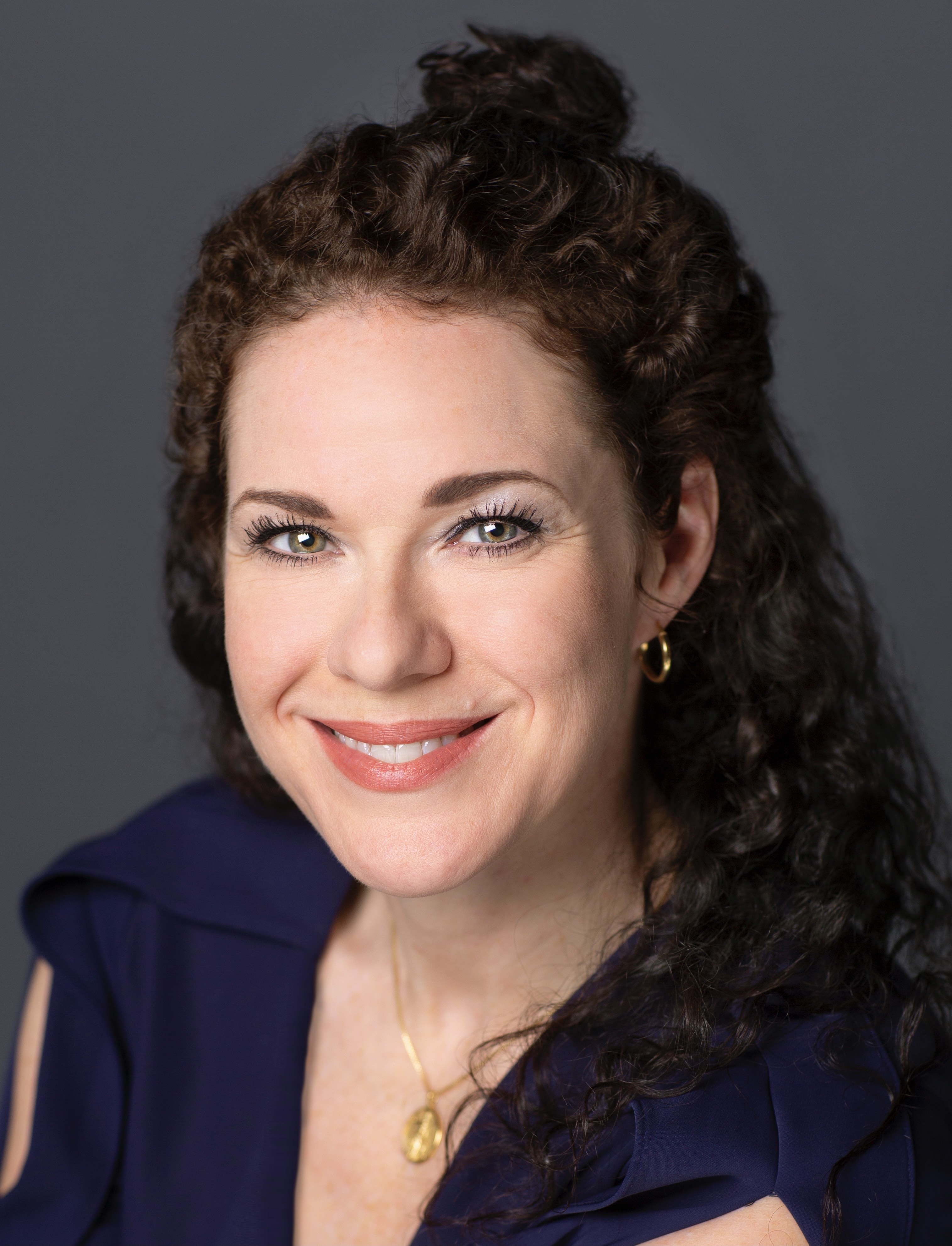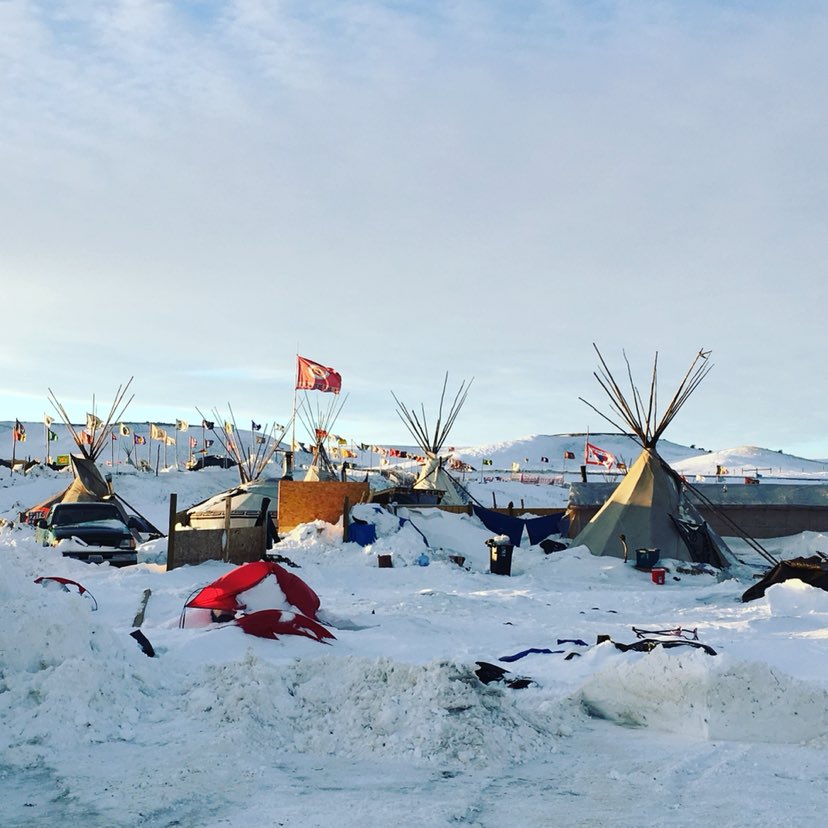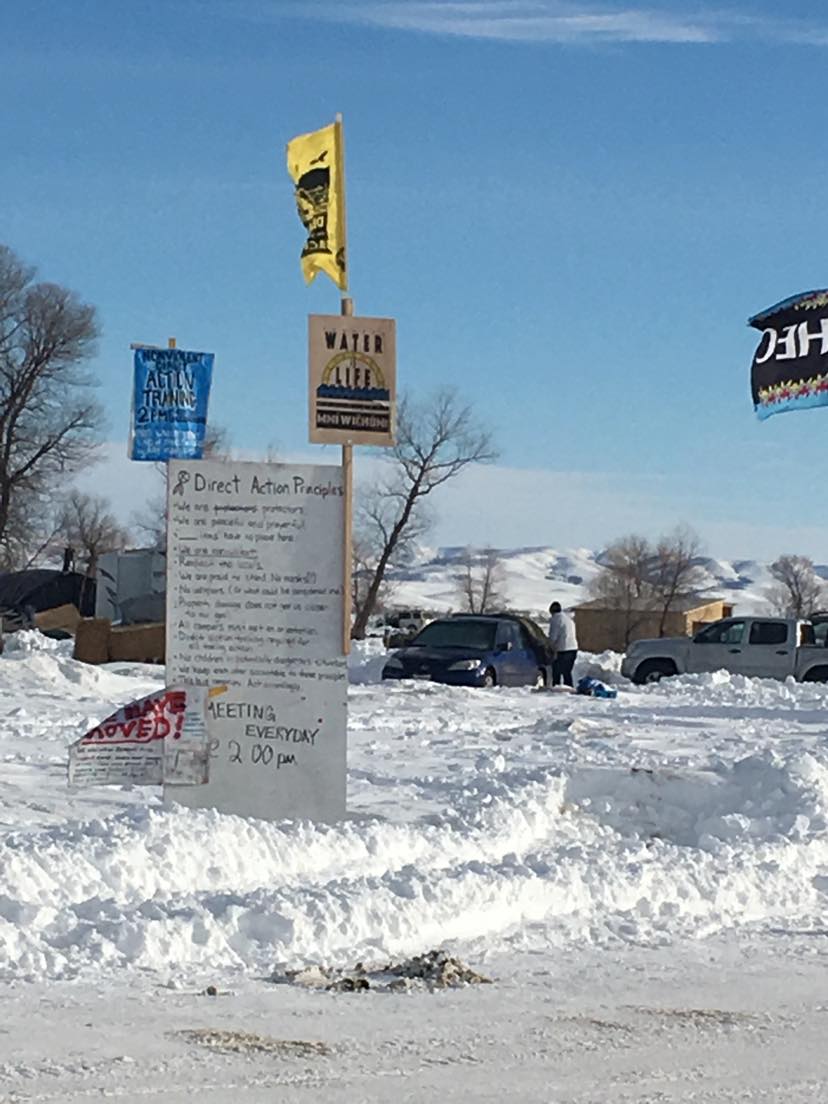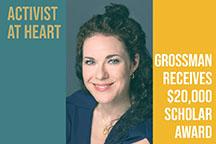- Log in to post comments

Kandice Grossman
Single mom can now focus on dissertation, quitting one or more of four jobs
Kandice Grossman, who is working toward a PhD degree in environmental sociology as part of the Department of Sociology, received a highly honored scholar award of $20,000 from the P.E.O. (Philanthropic Educational Organization) Sisterhood. She was nominated by the chapter in Lee Summit, Missouri. The scholarship is one of 100 distributed nationwide and throughout Canada.
Founded in 1869, the P.E.O Sisterhood, a philanthropic educational organization headquartered in Des Moines, Iowa, is dedicated to supporting higher education for women. It has about 6,000 chapters with about a quarter of a million active members.
The organization’s Scholar Awards were established in 1991 as merit-based awards for those pursuing a doctorate-level degree at an accredited college or university. Grossman was chosen for her high academic achievement and potential for having a positive impact on society, the organization states in a press release.
Grossman, who is in her fifth year of her PhD and about to enter her final year of studies, didn’t apply for the scholar award; instead, she was nominated by the P.E.O. chapter in Lee Summit, Missouri. Grossman then had a[K1] zoom interview before she was actually accepted for the nomination, and the rest is history.

Led by Oceti Sakowin Tribal members, the Standing Rock movement (2016-17) in North Dakota sought to stop the construction of the Dakota Access Pipeline (DAPL) in the name of treaty rights, Indigenous sovereignty, climate justice, and water protection.
Not an Easy Path
The single mom of two daughters, who was born and raised in Missouri, works four jobs to help raise her kids, pay the bills, put food in the fridge, and plan for studies, all while doing her dissertation. “I’m a little tired,” she sighs.
She says she will use the funds for living and research expenses.
“I think one of the things that was most touching for me was they (P.E.O Scholar Awards) really understood what I am trying to do. It was like they got it. It truly is a women supporting women organization.
“I was in total shock (upon hearing I received the award). “I really didn’t think I had a chance at this award, being totally honest. It was just an honor to be nominated, and I thought ‘you know this is great, I can use this on my CV as an accomplishment’ and I was just happy with that. So, when I actually got the award, I really couldn’t process it for at least 24 hours.
“I felt so grateful. I felt immense gratitude for the support. It’s really just so nourishing to feel that kind of support. It’s going to be life changing. It’s opening up the time and space I need to finish my dissertation. I’m immensely grateful. And I also felt as if it’s affirming that I’m on the right path.”
She says she can focus on her writing and research and pay the bills, all while quitting one or two jobs. “If I was on my own, I would just be dirt poor for several years while doing school, but it’s too much to ask my family to do that,” she says.
She adds the award has given her the extra push she needs to get through her final year with energy and excitement, with confidence and competence. “That’s what I needed. I’m humbled, honored and extremely grateful.”

Signs of protest at Standing Rock.
Dissertation and Activism
Grossman’s PhD dissertation is on the Standing Rock Movement of 2016-2017, she says.
“The movement was led by the Oceti Sakowin Nation, who opposed the construction of the Dakota Access Pipeline in the name of water protection and treaty rights. I participated as a supply runner.”
Grossman, a self-declared lifetime activist/environmental activist, says being at the protest was “life-changing.”
“I was intrigued by two different aspects of the movement,” she says. “One was the mass coalitional efforts. There were so many different people who were drawn to this movement – an estimated 10,000 to 15,000 people. It was a really significant movement, with people from all over the world, all different tribes, different religious backgrounds, different class backgrounds …. It was fascinating to me that so many people were drawn to support this movement. So that’s part of my interest: coalition work. But I’m also interested in the suppression of the movement; there were many different agencies – federal, state, and local – that were called in to investigate and essentially suppress the movement, including a private military company.”
Grossman has always been concerned about race, class, and gender inequality, even as a young child.
“I really started participating in forms of activism in my teen years,” she recalls. “And as I got older, my interests shifted more toward protecting the environment. So that is what I love about sociology. Sociology analyzes the relationship between society and nature and how they are intimately intertwined.”
I really started participating in forms of activism in my teen years. And as I got older, my interests shifted more toward protecting the environment. So that is what I love about sociology. Sociology analyzes the relationship between society and nature and how they are intimately intertwined. - Kandice Grossman
Grossman has a bachelor’s degree in independent studies with an emphasis in history and philosophy. She also has a master’s degree in women’s studies. After she finishes her PhD, she hopes to get an academic teaching position, perhaps in women’s studies, or teaching environmental sociology or anything with an environmental study emphasis.
“I love interdisciplinary departments where I can pull in women’s studies, sociology, and environmental studies,” she says. “And also, a little bit of history.”
